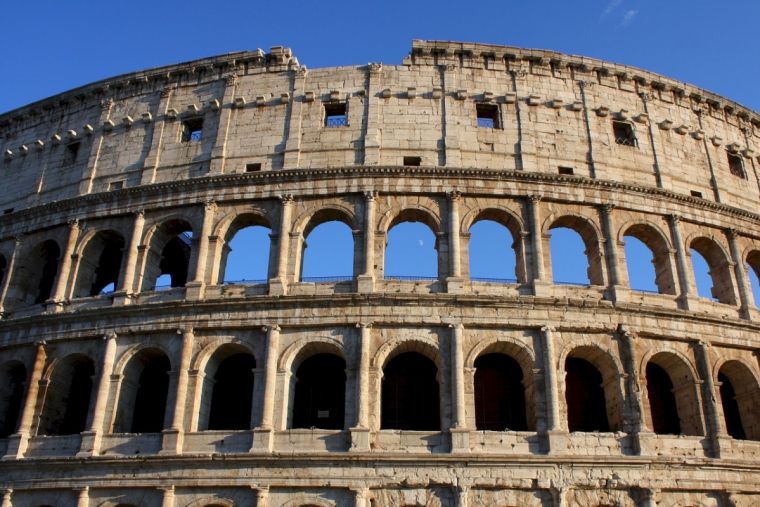
Pixabay – The Colosseum, one of ancient Rome’s most recognisable buildings.
On this day in AD 410, Rome was sacked by the invading Gothic army of Alaric. It was a seismic event in the life of the city, which had not been successfully besieged for 800 years. Though by this time Rome was no longer the capital of the Empire – that was now Constantinople, modern-day Istanbul – it still carried all its ancient prestige and its fall was shattering. Furthermore, it was the heart of Christianity, and the catastrophe sparked a war of words between pagans and Christians about who was to blame.
In response to this, St Augustine, the great North African theologian, wrote one of his most influential books, The City of God. He argued that the world was the scene of a war between God and the Devil, and that God providentially moves the governments and military forces aligned with the Catholic Church to achieve his ends. But in its vast scope – the English translation runs to more than 1,000 pages – The City of God is a treasury of spiritual riches and has many lines that have found their way to how Christians think about the world today. Here are 10 quotes from The City of God.
1. “God is always trying to give good things to us, but our hands are too full to receive them.”
2. “Justice being taken away, then, what are kingdoms but great robberies? For what are robberies themselves, but little kingdoms?”
3. [Speaking of the Church] “There are wolves within, and there are sheep without.”
4. “The bodies of irrational animals are bent toward the ground, whereas man was made to walk erect with his eyes on heaven, as though to remind him to keep his thoughts on things above.”
5. “Those who must inevitably die ought not to worry overmuch about what accident will cause their death, but about their destination after dying. Christians know that the death of a poor religious man, licked by the tongues of dogs, is far better than the death of a godless rich man, dressed in purple and linen.”
6. “So it falls out that in this world, in evil days like these, the Church walks onward like a wayfarer stricken by the world’s hostility, but comforted by the mercy of God. Nor does this state of affairs date only from the days of Christ’s and His Apostles’ presence on earth. It was never any different from the days when the first just man, Abel, was slain by his ungodly brother. So shall it be until this world is no more.”
7. “The good man, although he is a slave, is free; but the bad man, even if he reigns, is a slave, and that not of one man, but, what is far more grievous, of as many masters as he has vices.”
8. “It was to Noah that God gave instructions to make an ark in which he was to be rescued from the devastation of the Flood, together with his family, that is, his wife, his sons and daughters-in-law, and also the animals that went into the ark in accordance with God’s directions. Without doubt this is a symbol of the City of God on pilgrimage in this world, of the Church which is saved through the wood on which was suspended ‘the mediator between God and men, the man Christ Jesus’.”
9. “The whole of history since the ascension of Jesus into heaven is concerned with one work only: the building and perfecting of this ‘City of God’.”
10. “When consent takes the form of seeking to possess the things we wish, this is called desire. When consent takes the form of enjoying the things we wish, this is called joy.”
Follow Mark Woods on Twitter: @RevMarkWoods


